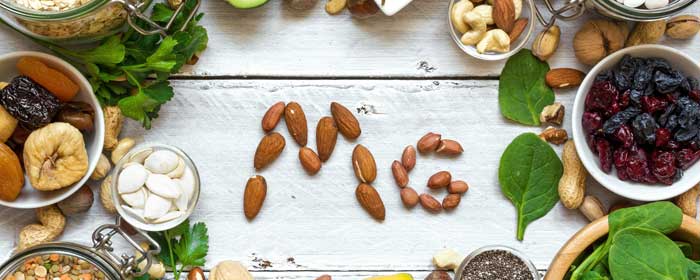
by admin | Jul 3, 2018 | Health Awareness, Hyperbaric Oxygen Therapy, Stem Cell Therapy
Hyperbaric Oxygen Therapy (HBOT) is a powerful treatment used to aid in the healing of many conditions and illnesses. Individuals who undergo this unique form of therapy sit in a controlled environment, called a chamber, with higher levels of oxygen and increased atmospheric pressure. Together, the pressure and high oxygen concentration help to oxygenate the blood, which can facilitate cellular regeneration, healing of wounds, and decreases in inflammation levels. The therapy can treat burns and sores, concussions, sports injuries, and decompression syndrome, among other ailments.
In fact, the benefits of HBOT span so far and wide that some individuals have even sought to bring the treatment into their own homes. This is done using soft HBOT chambers, which are different from the hard medical-grade chambers that are operated by professionals in treatment centers. Here, we walk you through the key differences between hard and soft chambers to help you make informed decisions about your treatment options.
Hard HBOT Chambers
To understand the most crit ical differences among hard and soft chambers, it’s important to revisit the two key principles of HBOT: oxygen and pressure. Combining these two factors to facilitate an environment in which expedited healing can take place is what makes this form of therapy so effective. In hard chambers, the air features 100% medical-grade oxygen and is commonly pressurized to a maximum atmospheric absolute (ATA) of up to 3.0, or a depth of 66 feet. They are specifically built to achieve pressures for therapeutic purposes, and some can go to 6.0 ATA.
ical differences among hard and soft chambers, it’s important to revisit the two key principles of HBOT: oxygen and pressure. Combining these two factors to facilitate an environment in which expedited healing can take place is what makes this form of therapy so effective. In hard chambers, the air features 100% medical-grade oxygen and is commonly pressurized to a maximum atmospheric absolute (ATA) of up to 3.0, or a depth of 66 feet. They are specifically built to achieve pressures for therapeutic purposes, and some can go to 6.0 ATA.
The immense level of healing achieved through these systems is backed by thousands of clinical studies and has even been shown to aid in bone and tissue regrowth. Conditions that have shown benefit with HBOT in conjunction with stem cell therapy are Multiple Sclerosis, Traumatic Brain Injury, Post-Stroke, and Sports Injuries to name a few. This is because hard chamber HBOT can mobilize stem cells (CD34+ pluripotent cells) responsible for the regrowth of significantly wounded areas. Hard HBOT chambers can also kill harmful bacteria.
Because these hard-sided chambers are found only in medical or therapy centers and controlled by trained professionals, the risks of breathing contaminated or polluted air are mitigated. In addition, hard chambers meet the American Society of Mechanical Engineers Pressure Vessels for Human Occupancy (ASME-PVHO-1) standard. However, because it is illegal to purchase medical-grade oxygen without a prescription, this form of therapy can only be received under the care of specialists.
Soft-Sided HBOT Chambers
Unlike hard-side d chambers, soft-sided HBOT chambers are portable and can be purchased for home use. They typically feature a steel frame with a zipped inflatable chamber. Oftentimes, they are used as a temporary treatment for divers and mountain climbers suffering from decompression syndrome and altitude sickness when they are already in route to receive HBOT in a hard chamber. On the surface, soft HBOT chambers might seem like a convenient alternative to receiving therapy at a treatment center. Yet, research shows that these solutions are ineffective for achieving the same level of benefits provided by hard chambers, and in fact, using them can put patients at risk.
d chambers, soft-sided HBOT chambers are portable and can be purchased for home use. They typically feature a steel frame with a zipped inflatable chamber. Oftentimes, they are used as a temporary treatment for divers and mountain climbers suffering from decompression syndrome and altitude sickness when they are already in route to receive HBOT in a hard chamber. On the surface, soft HBOT chambers might seem like a convenient alternative to receiving therapy at a treatment center. Yet, research shows that these solutions are ineffective for achieving the same level of benefits provided by hard chambers, and in fact, using them can put patients at risk.
Let’s return to the two components needed for effective HBOT: oxygen and pressure. While the air in hard chambers is 100% medical-grade oxygen, soft chambers used at home feature regular ambient air, with just 21% oxygen. Plus, they can only be pressurized to 1.3 ATA, or a depth of roughly eight feet. This lower pressure level is simply not enough to facilitate healing. Used in conjunction with 100% oxygen (which again, can only be administered by medical professionals), it can be used as a temporary treatment for altitude sickness and decompression syndrome – but that is all the FDA approves soft-sided HBOT chambers for. Therefore, they serve little purpose in the home setting. In fact, it isn’t recommended for soft chambers to be used for any type of healing outside of treating the two conditions described above. Not only are the oxygen and pressure levels too low to achieve treatment, but the environment can promote the growth of undesirable aerobic bacteria. Soft chambers do not meet the ASME PVHO-1, have not been proven to promote healing through clinical research, and may even pose risks of breathing in polluted or contaminated air.
Ultimately, soft chambers may provide medical benefits in very specific circumstances, but hard chambers are the only vessel for HBOT that can support all types of healing by oxygenating the blood and stimulating stem cells. When practiced under the care of trained professionals, hard chamber HBOT poses few minimal risks and can make a significant difference in improving an individual’s quality of life.

by admin | Jun 27, 2018 | Health Awareness
Magnesium plays an important role in bodily functions. It is required for more than 300 enzyme systems, including nerve function and blood glucose control. While the mineral is abundant in the body, many adults need more of it. Research shows that 68% of U.S. adults consume less than the recommended daily amount of magnesium, with nearly one-fifth of the population taking in less than half than necessary amounts.
Why Is Magnesium So Important?
In recent years, researchers have established a link between magnesium levels and inflammation. Research shows that at the cellular level, magnesium is responsible for reducing inflammation. When magnesium intake is increased in subjects with high chronic inflammation, the inflammatory response decreases.
Because many medical experts and scientific researchers believe that many chronic illnesses share the common root cause of inflammation, controlling the body’s inflammatory response is critical to staying disease-free and ensuring long-term wellness. Cardiovascular disease, high blood pressure, and diabetes are just a few of the illnesses commonly attributed to chronic inflammation. Moreover, individuals who already have chronic diseases could achieve better symptom control by reducing inflammation levels through added magnesium intake.
Additional Magnesium Benefits
Beyond controlling inflammation, magnesium contributes to heart health, bone strength, and energy creation. It also helps to create and repair RNA, supports muscle movement, and aids in mood regulation. In fact, individuals with the lowest magnesium intake levels have been found to be more at risk of developing depression.
How Can I Increase My Magnesium Intake?
First, it’s important to understand that your magnesium levels could be fine. Some common reasons for low magnesium levels include alcoholism, low dietary intake, and poor kidney functionality. Unless you have one of these or another preexisting condition which causes magnesium intake, you may not need to increase your levels.
Magnesium is found naturally in spinach, black beans, avocado, certain types of nuts, and enriched cereals. It is also found in many dairy products and whole grain foods. Thus, if you are already following healthy eating habits, you may be getting enough magnesium through your diet alone.
Nonetheless, deficiencies are possible. People with type 2 diabetes, gastrointestinal diseases, and older adults are more at risk for deficiencies. Early signs of deficiencies include nausea, diarrhea, confusion, weakness, vomiting, and fatigue. As the condition progresses, seizures, muscle cramps, numbness, tingling, and abnormal heartbeats can occur.
If you’re wondering whether your magnesium levels should be higher, talk to your doctor. They may recommend a serum magnesium test to assess your levels. If you are too low in the mineral, they may recommend taking a daily supplement to increase your levels and potentially improve your overall health.

by admin | Jun 25, 2018 | Health Awareness
Sugar is a simple carbohydrate the body processes and uses for energy. It is found in its natural form as fructose in fruit and as lactose in dairy products. Yet, chemically-produced sugar is also added to certain processed foods to produce a different flavor. The way our bodies metabolizes sugar depends on the type and the amount we consume.
Controlling the intake of all forms of sugar is critically important for individuals with diabetes and pre-diabetes, as having any form of the disease means you have too much glucose in your blood. Failure to control blood sugar could lead to complications like eye damage, foot damage, and skin conditions in diabetes sufferers. Worse yet, some complications, such as cardiovascular disease, could even be life-threatening.
An estimated 9% of the U.S. population has diabetes and must therefore actively control their sugar intake. Yet, here’s a staggering fact to consider: more than a third of U.S. adults aged 18 or older have prediabetes, which suggests our ability to limit sugar intake – especially the type found in processed food – must improve.
Beyond Diabetes
The prevalence of type 2 diabetes is increasing dramatically, but there are also other reasons for populations as a whole to begin watching their sugar intake. Excess sugar is linked to fatty liver disease, heart disease, and high cholesterol. It can also have deadly consequences: research shows individuals who consumed 25% or more of their daily calories as sugar were more than two times as likely to die from heart disease than those whose diets had less than 10% added sugar.
Added sugars have no nutritional value; yet, they make up at least 10% of the calories average U.S. individuals consume daily. In fact, the average person consumes more than 126 grams of the sweet stuff each day, which is more than twice the daily recommendation of 50 grams set forth by the World Health Organization. Thus, in order to avoid the scary health risks discussed above, it’s critical for the majority of the population to start slashing sugar levels.
How to Reduce Sugar Intake
One barrier to controlling sugar intake is the fact that the habit is particularly hard to kick. Once we begin consuming sugar regularly, we are hardwired to continue craving it. While it might not have addictive properties per se, research shows that consuming sugar releases dopamine and impacts the same region of the brain as cocaine and heroin.
Luckily, there are effective ways to slowly reduce your sugar intake. For many individuals, sodas are the primary source of added sugars. Switching to seltzer water with fresh fruit can aid in significantly lowering processed sugar intake. For others, processed foods are the worst offenders. Be wary of low-fat processed foods, which often contain added sugars to improve flavor. Regularly choosing fruit when you’re craving something sweet can help provide your body with nutrients instead of empty calories, and may help you avoid the potentially serious effects of sugar over a long-term basis.

by admin | Jun 22, 2018 | Health Awareness
The father of modern medicine, Hippocrates, once said that all disease begins in the gut. Though his belief was born more than 2,000 years ago, many scientists support his theory to this day. In fact, researchers are still uncovering new links between intestinal health and certain types of diseases. While it’s true that not all afflictions originate in the GI tract, most health experts now agree that a leaky gut could be responsible for many types of chronic conditions. Let’s take a closer look at what that means.
The Importance of Gut Health
The human intestinal tract is home to as many as 500 unique species of bacteria. Many of these are considered “good” bacteria: they aid in digestion, process nutrients, and help your body fight off bacteria. Maintaining harmony among these bacteria is therefore critically important to a person’s overall wellness. When the balance is altered, it causes a condition called dysbiosis.
The condition can be as mild as an upset stomach which corrects itself, but in its more advanced form, it can produce chronic symptoms such as constipation, nausea, diarrhea, and fatigue. Overgrowth of a single bacteria, such as Staphylococcus aureus, can cause conditions such as staph infections. This bacterial imbalance may also lead to leaky gut syndrome.
The Role of Gut Lining
When the ratio of good-to-bad gut bacteria is off-kilter, unwanted bacteria called endotoxins may leak through the intestinal lining and make their way into the bloodstream. The immune system registers the bacteria as foreign bodies and attacks them, causing chronic inflammation. It is suspected that this ongoing inflammatory reaction caused by intestinal permeability could be linked to serious illnesses, including fatty liver disease and type 2 diabetes. Leaky gut is also suspected to be related to chronic inflammatory conditions like arthritis, as well as allergies, inflammatory bowel disease, and gastric ulcers.
How to Promote a Healthier Gut
Unfortunately, achieving a balanced intestinal microbiome isn’t always as simple as maintaining a healthy diet. While limiting the intake of processed foods and alcohol could help (and delivers additional health benefits anyhow), there are other factors at play. Everything from the compounds in our tap water to antibiotics alters our gut bacteria, so many people need a more powerful solution for effectively restoring healthy gut flora.
If you suffer from symptoms suggestive of dysbiosis, including diarrhea, bloating, reflux, constipation, or other forms of stomach irritation, it’s a good idea to seek help from a functional medicine doctor. Professionals can assess your symptoms and may order a diagnostic test such as a hydrogen breath test, comprehensive digestive stool analysis, or organic acids test to check for bacterial imbalances.
In the meantime, there are solutions available for stimulating the development of healthy gut bacteria, such as taking probiotics and using bovine colostrum. Rich in gut-healing immunoglobulins, these solutions are simply mixed with water and consumed twice daily on an empty stomach. After continued use, colostrum has been proven to modulate immune function and fight off infectious processes.

by admin | Jun 15, 2018 | Health Awareness, Osteoarthritis
When Osteoarthritis (OA) sufferers experience stiffness and discomfort in their joints, exercise may be the last thing on their minds. In fact, OA is the leading cause for disability in older adults. Yet, there is compelling evidence that regular exercise can actually help patients manage the pain associated with the disease. One reason is that it helps aid in weight management, which is crucial to minimizing joint strain. Additionally, exercise can reduce OA symptoms, improve functionality, and preserve range of motion.
With that said, exercising to manage OA without causing further discomfort proves to be challenging. For many patients, the solution lies in selecting low-impact exercises that won’t overwhelm joints and cartilage which have already been compromised. Here are some of the best types of physical activity you can incorporate into your care regimen for effective pain management:
Walking
One of the healthiest exercises of all, walking requires no equipment and can be done either indoors on a treadmill or outside. For minimized impact, take shorter strides and hold a pace at which you can maintain a conversation comfortably. If you have been sedentary for some time, build up the lengths of your walks in five-minute increments. The Arthritis Foundation recommends performing moderate-intensity aerobic exercise for 150 minutes weekly (30 minutes of exercise, 5 days a week).
Swimming
If you’re seeking a full-body cardio workout to really get your heart pumping without straining joints, there’s no better exercise than swimming. Beyond doing laps, aquatic exercises in general are beneficial because the buoyancy of the water offsets the weight placed on the joints. Consider taking a pool aerobics class led by an instructor, or head to your local gym to try some solo activities like water walking.
Range of Motion Exercises
Slow, steady range of motion exercises are excellent ways to promote flexibility. When combined with cardiovascular exercises, these exercises can also strengthen muscles and connective tissue. Wall squats, knee extensions, and leg lifts are just a few ways to keep the lower body limber. For the upper body, consider arm circles and overhead reaches to stay flexible throughout the shoulders and back.
Stretching or Yoga
Stretching can help to alleviate pain and stiffness while increasing flexibility and lowering stress. Follow-along yoga videos and classes are ideal because they offer guided routines so participants can ensure they’re completing the stretches correctly. Poses can be modified to accommodate varying degrees of ability, and practicing certain routines regularly can even help to reduce inflammation across all skill levels.
Cycling
Like swimming, cycling is a low-impact aerobic exercise which can aid in weight management. Indoor stationary cycling is one popular way to maintain fitness year-round, while outdoor cycling on flat terrain may also be a good option for OA sufferers.
While exercise has its advantages for OA patients, it’s important to take note of any discomfort you experience during or after an activity. If you notice increasing pain, stop and talk to your doctor. Medical experts can recommend a routine tailored to your needs, which may include exercises performed under the supervision of a physical therapist.

by admin | Jun 13, 2018 | Diabetes, Health Awareness
Diabetes patients know that maintaining regular visits with their primary care physician is essential to effectively managing their condition and its symptoms. Yet, it’s also critical to make sure other aspects of their health are well-maintained, too. In order to take an all-encompassing approach to health management, individuals with diabetes should also follow a regular schedule of eye and dental exams as recommended by their optometrist and dental care team. Discover why these two facets of health are so important for diabetes patients in particular here.
Eye Exams for People with Diabetes
If you’ve never had an eyesight issues, you may wonder why your primary doctor would recommend having an eye exam following a diabetes diagnosis. The reason for this is because certain conditions in the eye, including glaucoma and cataracts, are more common in diabetes patients. While they are commonly treatable when caught in their early stages, when left unaddressed, they could lead to vision loss.
Additionally, individuals with diabetes may be at risk of developing a condition called diabetic retinopathy. When too much sugar is found in the blood supply, it can impact the blood flow to the retina. In its earliest stages, symptoms may be undetectable, but over time the condition may cause blurred vision, floaters, difficulty focusing, or other vision changes. Luckily, this and other conditions can be detected in tests performed during diabetic eye exams.
Any time you notice changes in your vision, it’s important to discuss your symptoms with an eye care professional. As with many other health conditions, treatments are often most effective when administered in the earliest phases of eye-related issues. It is advisable for individuals with diabetes to receive eye exams performed by specialists at least once every one to two years, depending on their doctor’s recommendation.
Dental Exams for Diabetes Patients
According to research, there has been a recent decline in dental visits in adult patients with diabetes. This is a problem because dental wellness and diabetes are interdependent on one another: for instance, people with diabetes have higher odds of developing periodontal disease, and periodontal disease can worsen diabetes by impacting blood glucose levels.
As with eye exams, dental checkups are useful for early detection of potentially serious issues. Periodontal disease, also called periodontitis, is an aggressive form of untreated gum disease which causes pockets to form between the teeth and the soft tissue of the mouth. Within these pockets, infections can develop, which may eventually lead to bone loss. Thus, not only can periodontitis worsen diabetes symptoms, but it can eventually lead to widespread health issues.
The good news is that the dental conditions to which diabetes patients are more prone, including all forms of gum disease, are easily detected by dental care professionals. Therefore, while a preventive dental care regimen is important for all individuals, it is especially critical for anyone with diabetes.
Diabetes is a condition with symptoms that are not isolated to one part of the body, so it’s important to take as broad an approach to wellness as possible. By going for regular eye and dental checkups in addition to receiving treatment from your diabetic care team, you can manage your symptoms more proactively and enjoy a better quality of life.

 ical differences among hard and soft chambers, it’s important to revisit the two key principles of HBOT: oxygen and pressure. Combining these two factors to facilitate an environment in which expedited healing can take place is what makes this form of therapy so effective. In hard chambers, the air features 100% medical-grade oxygen and is commonly pressurized to a maximum atmospheric absolute (ATA) of up to 3.0, or a depth of 66 feet. They are specifically built to achieve pressures for therapeutic purposes, and some can go to 6.0 ATA.
ical differences among hard and soft chambers, it’s important to revisit the two key principles of HBOT: oxygen and pressure. Combining these two factors to facilitate an environment in which expedited healing can take place is what makes this form of therapy so effective. In hard chambers, the air features 100% medical-grade oxygen and is commonly pressurized to a maximum atmospheric absolute (ATA) of up to 3.0, or a depth of 66 feet. They are specifically built to achieve pressures for therapeutic purposes, and some can go to 6.0 ATA. d chambers, soft-sided HBOT chambers are portable and can be purchased for home use. They typically feature a steel frame with a zipped inflatable chamber. Oftentimes, they are used as a temporary treatment for divers and mountain climbers suffering from decompression syndrome and altitude sickness when they are already in route to receive HBOT in a hard chamber. On the surface, soft HBOT chambers might seem like a convenient alternative to receiving therapy at a treatment center. Yet, research shows that these solutions are ineffective for achieving the same level of benefits provided by hard chambers, and in fact, using them can put patients at risk.
d chambers, soft-sided HBOT chambers are portable and can be purchased for home use. They typically feature a steel frame with a zipped inflatable chamber. Oftentimes, they are used as a temporary treatment for divers and mountain climbers suffering from decompression syndrome and altitude sickness when they are already in route to receive HBOT in a hard chamber. On the surface, soft HBOT chambers might seem like a convenient alternative to receiving therapy at a treatment center. Yet, research shows that these solutions are ineffective for achieving the same level of benefits provided by hard chambers, and in fact, using them can put patients at risk.





 St. Petersburg, Florida
St. Petersburg, Florida
